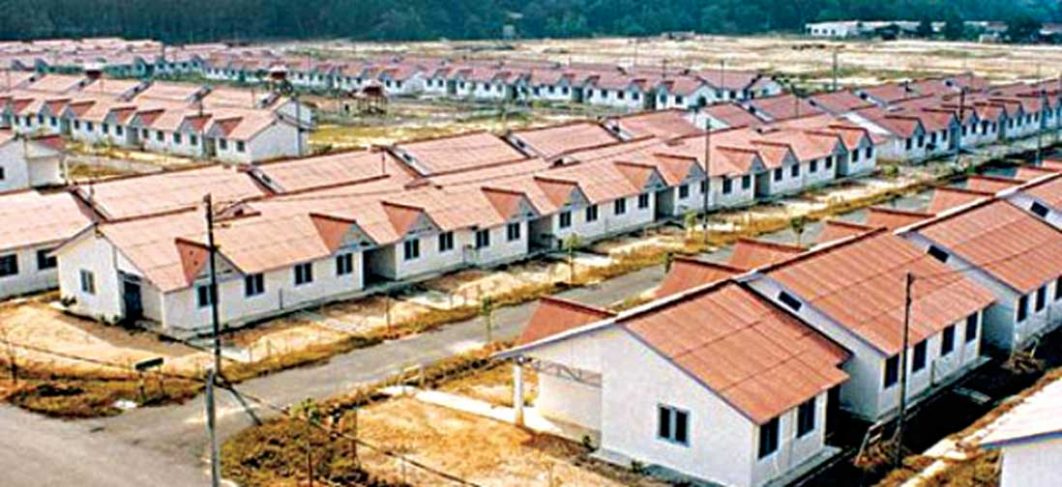Major modification will offer property owners a stake in the ownership of their buildings and will hand them more power, control and security over their homes.
- Change will guarantee flat owners are not second-class homeowners and that the unfair feudal leasehold system is given an end, building on the Prepare for Change aspiration to increase living requirements
Homeowners will have a stake in the ownership of their buildings from day one, not have to pay ground rent, and will get control over how their buildings are run under major strategies to bring the feudal leasehold system to an end.
Plans to revitalize commonhold and make it the default tenure have been revealed today. Unlike leasehold ownership where third-party landlords own buildings and make decisions on behalf of house owners, these changes will empower difficult working property owners to have an ownership stake in their structures from the beginning and will provide higher control over how their home is handled and the costs they pay.
Supporting shipment of a manifesto commitment - these reforms mark the start of the end for the feudal leasehold system. The modifications complement the Plan for Change turning point to build 1.5 million homes, combatting the severe and entrenched housing crisis by making homeownership suitable for the future, by putting people in control of the cash they invest in their home.
Commonhold-type designs are utilized all over the world. The autonomy and control that it offers are considered granted in lots of other countries. It can and does work and the government is determined, through both new commonhold advancements and by making conversion to commonhold easier, to see it settle - so countless existing leaseholders can also take advantage of this action modification in rights and security.
Housing and Planning Minister Matthew Pennycook stated:

" This government guaranteed not only to offer immediate relief to leaseholders suffering now however to do what is essential to bring the feudal leasehold system to an end - and that is exactly what we are doing.
" By taking definitive actions to revitalize commonhold and make it the default period, we will make sure that it is house owners, not third-party proprietors, who will own the buildings they reside in and have a greater say in how their home is managed and the expenses they pay.
" These reforms mark the beginning of completion for a system that has actually seen millions of homeowners subject to unjust practices and unreasonable costs at the hands of their property owners and develop on our Prepare for Change dedications to increase living requirements and produce a housing system fit for the twenty-first century."
Following the introduction of a detailed new legal structure for commonhold, new leasehold flats will be banned, and in the meantime the government will continue to carry out reforms to assist millions of leaseholders who are currently suffering from unfair and unreasonable practices at the hands of dishonest freeholders and handling representatives.
The government has actually currently empowered leaseholders with more rights and security - allowing them to purchase their freehold or extend their lease without having to wait two years from the point they bought their residential or commercial property, and revamping the right to handle - putting more leaseholders in the driving seat of the management of their residential or commercial property and service charges.

Progress will be made as rapidly as possible to make it more affordable and simpler for leaseholders to buy their freehold or extend their lease, and to make it easier for leaseholders to challenge unreasonable service charge boosts.
Changes set out in the Commonhold White paper consist of:
- New guidelines that will enable commonhold to work for all kinds of advancements, including mixed-use buildings and allowing shared ownership homes within a commonhold.
- Greater flexibility over development rights, helping designers develop with self-confidence and keeping safeguards for the consumer.
- Giving mortgage lending institutions higher guarantee with new steps to safeguard their stake in structures and safeguard the solvency of commonholds - such as necessary public liability insurance and reserve funds and greater oversight by commonhold unit owners to keep expenses budget friendly.
- Strengthening the management of commonholds, with new guidelines around designating directors, clear requirements for repairs, and mandating usage of reserve funds; and
- Providing a boosted deal for property owners - including requiring higher chances for democracy in agreeing the yearly budget, clarifying how owners might change "local rules" over how a building is run and brand-new protections for when things go wrong.
A new Code of Practice will set out how expenses ought to be allocated in commonhold, targeted at offering consumers with transparency and clearness, and the Government is committed to strengthening policy of managing representatives. The federal government will likewise launch a consultation to ban brand-new leasehold flats later this year to explore the very best method forward.
An enthusiastic draft Leasehold and Commonhold Reform Bill will be released later this year setting out the legal structure for how reformed commonhold will work.
Further info

Under the current system, leasehold ownership hands the homeowner the right to occupy land or a residential or commercial property for a set duration which reverts back to the freeholder once this ends. It indicates leaseholders do not own their residential or commercial property outright, are forced to pay potentially escalating ground rent costs in some cases, and have a proprietor who identifies how the building is run and figures out service charges the leaseholder need to pay.
Commonhold ownership permits people to totally own their residential or commercial property outright, with no ending term or need to conserve to extend a lease. They can have a say in handling their building, and have the advantage of not requiring to pay ground lease or have a 3rd celebration landlord. There are no leases, with the rights, obligations and rules for all residential or commercial property owners set out in the Commonhold Community Statement (CCS). This "rulebook" develops how the shared areas and facilities will be handled, kept and funded, along with the responsibilities for each individual. It establishes a democratic system of decision-making and helps avoid conflicts.

Each residential or commercial property owner will become part of a commonhold association upon buying their home, which manages both the governance and management of the building unless it decides to generate a managing representative - which will be liable to the commonholders, not to a property manager, consisting of the power to work with and fire them.
Through the commonhold association, homeowners will have a vote on the yearly budget plan, which is for upkeep and for maintenance of the building, and on the charges they have to pay - equivalent to what service fee are utilized for under the existing leasehold system. Homeowners will likewise be able to effectively prepare for longer-term repairs or upkeep under commonhold, and vote on issues that affect them consisting of embracing 'local guidelines' - specific to how they and their neighbours in the same block of flats wish to live.
The government is pressing forward the majority of the Law Commission's recommendations due to the benefits of this period over leasehold. Initially presented in England and Wales in 2002, commonhold has actually had a hard time to remove due to defects in its legal structure, in spite of its success in Europe, New Zealand, Australia, the US and other parts of the world.
Key distinctions between commonhold and leasehold:
- Commonhold offers full freehold ownership - real homeownership - unlike leasehold, whereby a residential or commercial property is rented out for a set quantity of time before reverting back to the landlord and house owners have an absence of control over their structure.
- Commonhold enables house owners a say on the yearly spending plan for their building - consisting of how their charges for upkeep and maintenance are invested - unlike leasehold, where an expense is typically enforced on leaseholders by landlords typically even after the money has actually been spent.
- There is no ground rent in a commonhold residential or commercial property, compared to older leasehold residential or commercial properties. The ground rent requirement for newer residential or commercial properties was eliminated in 2022 (2023 for retirement residential or commercial properties) through the Leasehold Reform (Ground Rent) Act 2022.
- Forfeiture is not possible under commonhold, indicating an unit owner can not be threatened with losing their home and equity as they can in leasehold. The government will likewise deal with the out of proportion and oppressive danger of forfeit as a method of compliance with a lease arrangement.
- Commonholders have the power to work with or fire a managing representative who operates in their interests, unlike in leasehold where one is appointed by the landlord.








